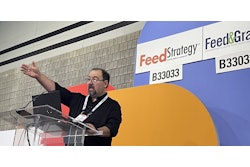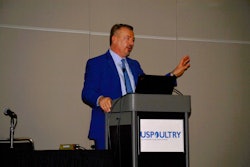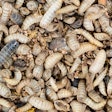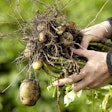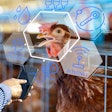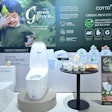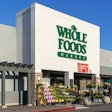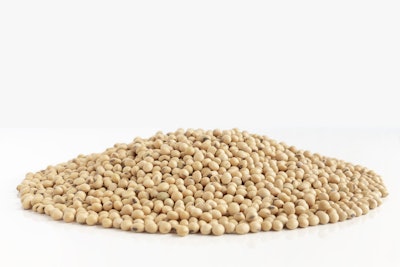
Decisions by the government of Thailand to ease the importation of soybean meal into the country have been welcomed by the nation’s leading feed manufacturer, Charoen Pokphand Foods Public Co. Ltd. (CPF). Furthermore, CPF has recently reached agreement with an international partner on more sustainable sourcing of soy.
Thailand’s administration, led by Prime Minister Srettha Thavisin, has recently announced a change in strategy that will ease the importation of soybean meal, as well as maintaining the tax on this trade at 2%.
These decisions will help support the nation’s livestock producers and benefit the Thai economy generally, according to Rewat Hathaisattayapong, head of feed business at CPF.
Illustrating the group’s commitment to the growth and sustainability of the country’s farmers, he said CPF began offering discounts last year on some of its animal feeds. In the second half of 2023, these amounted to THB30 (US$0.84) per bag. For its customers rearing broiler chickens, a further discount of THB3-4 has been introduced for this year.
This initiative underscores CPF’s dedication to the agricultural community, he said, and demonstrates tangible support for the backbone of Thailand’s agricultural sector.
Changes to feed ingredient import policy
In late December, the Cabinet approved several policies on the importation of corn, soybean meal and fish meal. According to Bangkok Post, these changes were made to support production.
In order to ensure Thailand’s producers receive fair prices, import permits will be granted for one year in future. Previously, they remained valid for a period of three years.
With these changes, the Cabinet aims to ensure demand for these raw materials can be met, while also protecting domestic producers.
Under World Trade Organization rules, the tariff rate for 11 authorized importers will remain at 2% for volumes within the quota. Applications for additional importers may be approved by the Food Policy Committee, but the tariff rate is set at 119% for out-of-quota shipments.
Conditions for imports under other trade agreements — such as the ASEAN Free Trade Area and the Thailand-Australia Free Trade Agreement — are unaffected by the Cabinet’s decision.
Thailand’s feed manufacturers must adhere to the agreement on the purchase of all products locally and at fair prices to ensure these guarantees.
“The Cabinet decision to grant import permits for only one year was to promote government schemes to expand areas for animal feed crop cultivation such as corn and soybeans in the country,” said a government spokesperson.
Local production is insufficient to meet Thai needs, according to Bangkok Post.
Annual domestic output amounts to 4.9 million metric tons (mmt) of corn, 2 mmt of soybean meal, and 300,000 metric tons (mt) of fish meal. However, national demand for these feed ingredients is 8.4 mmt, 4.2 mmt, and 600,000 mt, respectively.
CPF subsidiary moves towards deforestation-free soy
In recent weeks, CPF has announced that one of its subsidiaries has reached agreement with a global agricultural goods group to improve traceability in the soybean supply chain.
Agreement over the collaboration was reached with the Louis Dreyfus Co. (LDC) by the CP business Bangkok Produce Merchandising Public Co. Ltd. (BKP).
Aiming for more sustainable and deforestation supply chains, the two parties are set to collaborate over combining satellite mapping solutions with traceability data points to link up data on the supply chain. Covered by this agreement are soy products sourced by LDC in Brazil, and destined for several countries in Asia, where BKP and CPF manufacture and sell animal feeds as well as food products.
As well as reaffirming existing commitments to progress decarbonization and improve the sustainability in the food chain, the two parties will explore opportunities for further systems integration compatible with a number of international sustainability standards. These include EU Deforestation Regulation (EUDR), the Round Table on Responsible Soy (RTRS), the International Sustainability & Carbon Certification (ISCC), and ProTerra standard.
More on CP Group
Annual production of 17 million metric tons puts the CP Group third in the rankings of the world’s largest animal feed companies, according to Feed Strategy Top Feed Companies survey.
The Thailand-based company has operations across Asia, manufacturing feed for farmed livestock, aquaculture and pets for sale to other CP businesses and to third parties.
In 2023, CP Group developed a corn traceability system to follow the grain from field to feed mill to ensure sustainability.

